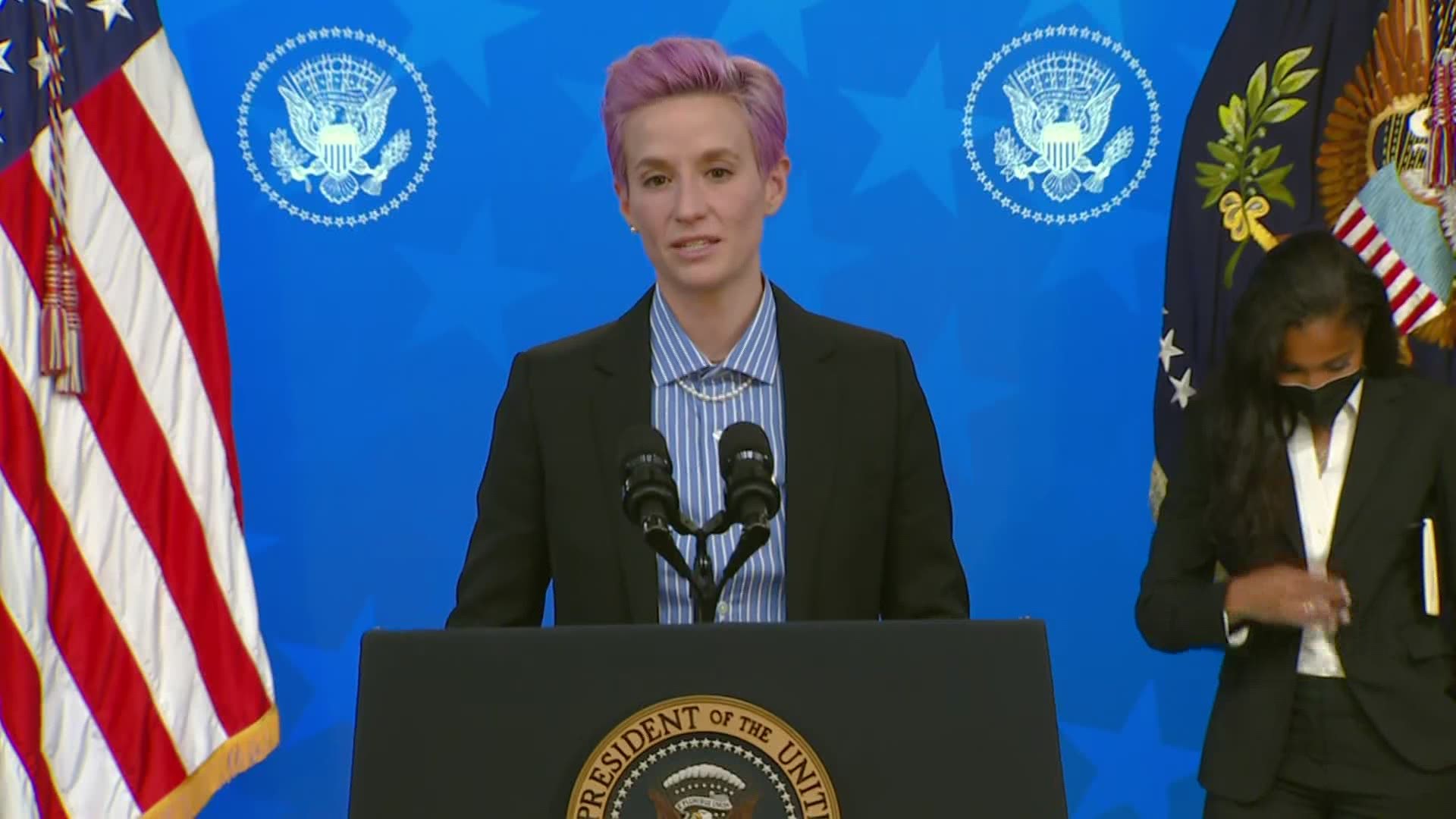WASHINGTON — U.S. women’s soccer star Megan Rapinoe told lawmakers on Wednesday that “there is no level of status, and there's no accomplishment or power that will protect you from the clutches of inequality.”
Rapinoe's testimony before a U.S. House committee came on Equal Pay Day.
Rapinoe and other members of the U.S. women’s soccer team will also participate in a White House event Wednesday afternoon with President Joe Biden and First Lady Jill Biden.
"We are told in this country that if you just work hard and continue to achieve, you will be rewarded and reward fairly. It’s the promise of the American dream. But that promise has not been for everyone,” Rapinoe told lawmakers, explaining how the U.S. women's soccer team is paid less than the men's team.
"In fact, Instead of lobbying with the women's team in our efforts for equal pay and equality in general, U.S Soccer Federation has continually lobbied against our efforts and the efforts of millions of people marginalized by gender in the United States," Rapinoe said.


"If it can happen to us, and it can happen to me, with the brightest lights shining on us, at all times, it can, and it does, happen to every person who is marginalized by gender. But we don’t have to wait," Rapinoe described. "We don’t have to continue to be patient for decades on end. We can change that today. We can change that right now. We just have to want to.”
During the 2019 World Cup, Rapinoe made headlines by declaring that she wouldn't visit the White House if invited by then-President Donald Trump.
Trump criticized Rapinoe in a series of tweets, but did eventually extend an offer for the team to visit the White House after they won the World Cup, according to Sports Illustrated. Rapinoe and the team declined the White House invitation and instead accepted an invite to celebrate the victory with a visit to Congress.
What is the gender pay gap?
While there has been ongoing debate over the gender pay gap, the Economic Policy Institute says there is definitely a disparity between men and women when it comes to pay.
In a report published by the independent, nonprofit think tank which studies economic trends and policies which affect working people, the organization found working women are in fact paid 80 cents for every dollar that men are paid, according to the Economic Policy Institute.

